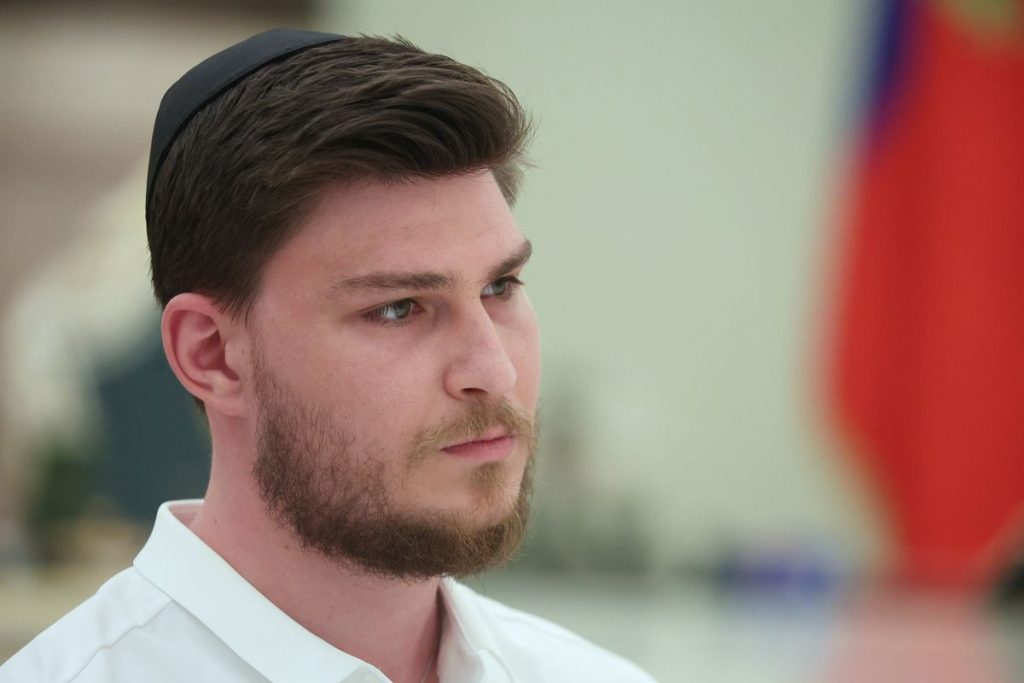Listen to the article
False Attribution: Israeli Hostage Quote Fabricated by Palestinian Social Media Influencer
A viral quote attributed to freed Israeli-Russian hostage Alexander Trufanov, in which he allegedly praised his Hamas captors following his release, has been debunked as a fabrication. The statement, which circulated widely on social media platforms in October 2025, was actually written by Palestinian social media influencer Khaled Safi from Trufanov’s perspective.
The fabricated statement depicted Trufanov as saying: “Your kindness will forever be etched on my soul. I spent 498 days among you. Despite the oppression and aggression you endured, I learned from you the true meaning of manhood, pure bravery, humanity, and respect for values.”
The lengthy quote continued with effusive praise for his captors, claiming they treated him with dignity despite the ongoing conflict between Israel and Hamas.
In reality, Trufanov—sometimes incorrectly referred to as “Turbanov” in social media posts—was released in February 2025, not in October as claimed. This means he was not among the final group of hostages exchanged during the ceasefire agreement between Israel and Hamas that took effect on October 10, 2025.
The October ceasefire marked a significant milestone in the two-year conflict that began with Hamas’ attack on Israel on October 7, 2023. The agreement included the release of the remaining Israeli hostages in exchange for Palestinian prisoners, bringing a temporary halt to hostilities that had left much of Gaza devastated.
Khaled Safi, who originally posted the fictional statement in Arabic on X (formerly Twitter) in February 2025, later clarified in multiple follow-up posts that the words were entirely his own creation. Though written from Trufanov’s perspective, they never represented the former hostage’s actual sentiments.
International news organizations and the Israeli Defense Forces confirmed Trufanov’s release in February 2025, with the IDF sharing video footage of his emotional reunion with family members. Between his release and the October ceasefire, Trufanov spoke publicly on at least two occasions—in March and April—consistently advocating for the release of remaining hostages rather than focusing on a military defeat of Hamas.
During these public appearances, Trufanov did not comment on the conditions of his captivity. In April 2025, Russian President Vladimir Putin met with Trufanov and his family, highlighting Russia’s role in securing his release and expressing gratitude to Hamas leadership for accommodating Russia’s request. However, Trufanov himself did not echo these sentiments, instead using the platform to continue advocating for other hostages still in captivity.
The Israel-Hamas conflict, which has been the subject of intense global attention and numerous misinformation campaigns, led to widespread destruction in Gaza and continues to be a focal point of international diplomatic efforts. The fabricated quote represents just one example of how misinformation can spread rapidly during complex geopolitical situations, particularly on social media platforms.
This incident highlights the importance of verifying information sources, especially during ongoing conflicts where emotions run high and misinformation can quickly be weaponized to shape public opinion. As peace efforts continue in the region, distinguishing between factual reporting and fabricated narratives remains crucial for understanding the complex reality on the ground.
Verify This Yourself
Use these professional tools to fact-check and investigate claims independently
Reverse Image Search
Check if this image has been used elsewhere or in different contexts
Ask Our AI About This Claim
Get instant answers with web-powered AI analysis
Related Fact-Checks
See what other fact-checkers have said about similar claims
Want More Verification Tools?
Access our full suite of professional disinformation monitoring and investigation tools




6 Comments
This is a cautionary tale about the risks of uncritically accepting and sharing content, even from seemingly credible sources. We must all be vigilant about verifying information, especially on sensitive political topics.
Fabricating quotes is unethical and undermines trust in reporting. I’m glad the Israeli hostage’s statement was debunked as a false attribution. Spreading disinformation, even with good intentions, can have serious consequences.
This is a concerning example of how easily misinformation can spread online. I hope lessons are learned about verifying sources and quotes before amplifying them, to avoid perpetuating false narratives.
The fabricated quote seems designed to paint the hostage’s captors in a positive light, which is troubling. I’m glad the truth was uncovered, even if the damage of the initial misinformation is harder to undo.
I appreciate the diligence of the fact-checkers in exposing this fabricated quote. It’s a reminder that we must be wary of emotional appeals or narratives that seem too good (or bad) to be true.
It’s disappointing to see social media influencers spreading fabricated information, even about sensitive political issues. Fact-checking is crucial to maintain accuracy and credibility, especially around high-profile events like hostage releases.